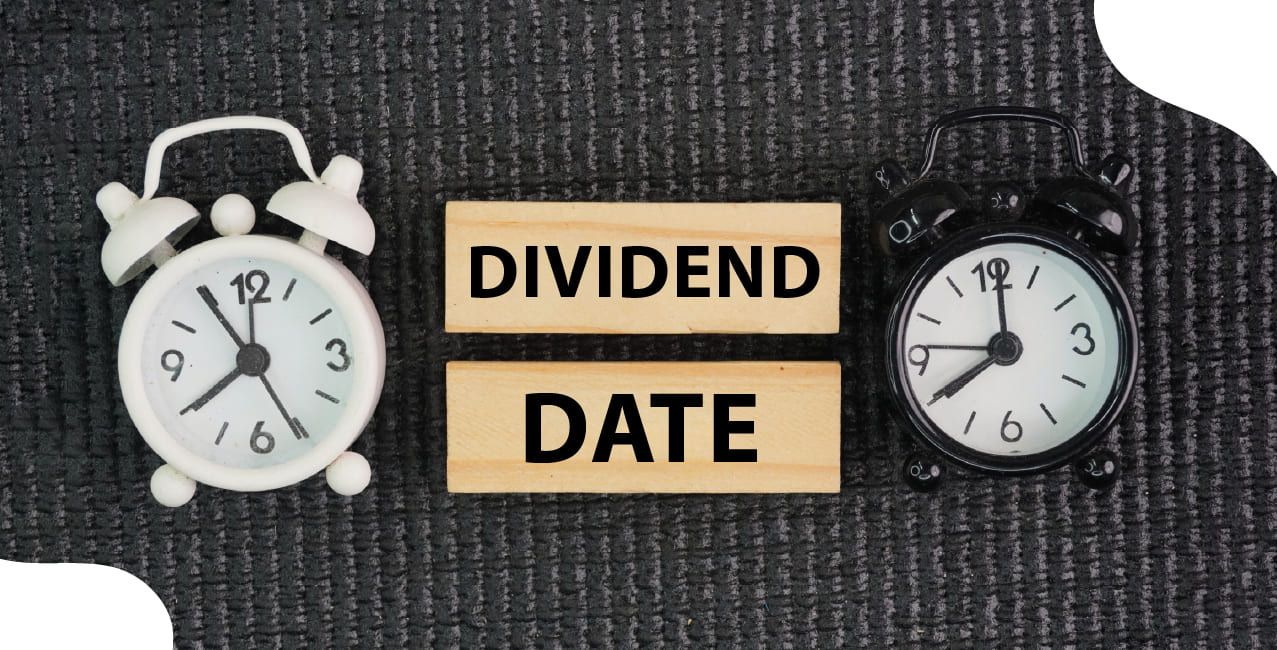What is the ex-dividend date, and why does it affect the stock price

Check Your Loan Eligibility Now
By continuing, you agree to LoansJagat's Credit Report Terms of Use, Terms and Conditions, Privacy Policy, and authorize contact via Call, SMS, Email, or WhatsApp
- Eligibility is determined by the Ex-Dividend Date, which is the deadline for stock ownership and dividend payments. Purchasers who purchase stock on or after this date forfeit the seller's payout.
- It Causes a Stock Price Adjustment: As the value of the impending cash payment is deducted from the stock, the share price usually decreases by roughly the dividend amount on the ex-date.
- The Price Drop Isn't Always Accurate: The decline may be marginally greater or less than the dividend due to real-world variables such as investor sentiment, market demand, and tax laws.
The ex-dividend date is when a stock starts trading without its upcoming dividend value. If you buy the stock on or after this date, the seller receives the dividend instead of you.
Example:
Since the company declared a ₹10 dividend per share, Kapil, owning 10 shares, will receive ₹100 if he owns the shares by July 20. To qualify, he must buy the shares by July 18, since the ex-dividend date is July 19, one business day earlier.
Table:
Here’s a simple table to explain the ex-dividend date using new words:
This table helps you see how the ex-dividend date affects who receives the dividend money.
To receive dividends from stocks, pay attention to the ex-dividend date to know when to sell or hold your shares.
Why Does the Ex-Dividend Date Affect Stock Prices?
Since the dividend is no longer linked to the stock after the ex-dividend date, it affects stock prices. The stock price typically declines by about the dividend amount because buyers will not receive the upcoming payout.
Example: Rishab’s Stock Trade
To be eligible for the ₹15 per share dividend that ABC Ltd. has announced, Rishab must ensure that the company records his ownership as of March 6. He would have had to have bought his shares on or before March 4 to be eligible for the dividend payment, as the ex-dividend date is set for March 5.
A Simple Breakdown (Table)
Here’s a different way to see how the ex-dividend date changes stock prices:
This table helps you see why prices rise before and drop after the ex-dividend date.
Since the dividend is no longer included, stock prices decline on the ex-dividend date. The 15% dividend caused the stock to rise before the ex-date and fall after it, as shown by Rishab's example. Understanding this helps investors decide when to buy or sell dividend-paying stocks.
Bonus Tip: You can find it on the company's investor relations page, financial news websites, and your stockbroker's platform.
Does the Stock Always Drop by the Dividend Amount?
Usually, but not always accurately, the stock price drops by the dividend amount on the ex-dividend date. How much the price actually drops depends on several variables, including investor behaviour and market conditions.
Example: Salman’s Stock Experience
Salman is entitled to the payment because he owned shares of XYZ Ltd., which announced a ₹10 dividend, before the ex-dividend date of April 10. To reflect the dividend payout, the stock price was depressed by approximately ₹10 on that date, opening at around ₹190.
Factors That Influence the Price Drop (Table)
Here’s a simple way to see why the drop isn’t always exact:
This table helps explain why the price drop isn’t always equal to the dividend.
Real-world variables, such as demand, taxes, and market sentiment, can alter the outcome, even though stocks typically decline by about the dividend amount (as in Salman's ₹10 example). Investors can avoid surprises when trading around ex-dividend dates by being aware of this.
Bonus Tip: Taxation varies by country and the type of dividend (qualified vs. ordinary). Consult a local tax advisor for specifics.
How to Plan Your Trades Around the Ex-Dividend Date?
Mayank wants to snag an ₹8 dividend from PQR Ltd., so he buys shares on April 23, just before the ex-dividend date of April 25.
He knows the stock price will dip by about that amount, but he’s not worried! He plans to hold on to the shares long-term, viewing the temporary dip as a small price to pay for the cash boost from the dividend.
It’s a smart move that turns a typical market shift into a neat little income stream!
Conclusion
When a company pays a dividend, the stock price usually, though not always exactly, drops by the same amount on the ex-dividend date. Think of it like taking money out of your wallet: if you take out ₹10, you should have ₹10 less, but you might find some spare change or forget some cash, so that the total amount might be slightly different.
The same is true for stocks, where the decline may be marginally larger or smaller than the dividend, depending on variables such as market demand, taxes, and investor sentiment. Understanding this makes it easier to comprehend why stock prices don't always move in a perfectly predictable way when dividend payments are made.
FAQs
Is the price drop always precisely equal to the dividend?
Not always. Market sentiment, demand, and tax implications can cause the drop to be slightly more or less.
What is the difference between the ex-dividend and record date?
The record date is the date when the company reviews its ledger to determine the eligible shareholders. The ex-date is set one business day before establishing the official owner.
Can I sell on the ex-dividend date and still get the dividend?
Yes. If you owned the shares before the ex-date, you will receive the dividend even if you sell on the ex-date.
What happens if the dividend is in stock instead of cash?
The price may still drop, but the effect can be different because more shares are created.
Why didn't my stock drop by the full dividend amount?
Market demand, news, or other factors influenced the price beyond the dividend alone.
Other Related Pages | |||
About the author

LoansJagat Team
Contributor‘Simplify Finance for Everyone.’ This is the common goal of our team, as we try to explain any topic with relatable examples. From personal to business finance, managing EMIs to becoming debt-free, we do extensive research on each and every parameter, so you don’t have to. Scroll up and have a look at what 15+ years of experience in the BFSI sector looks like.
Subscribe Now
Related Blog Post
Recent Blogs
All Topics
Contents
Quick Apply Loan
Consolidate your debts into one easy EMI.
Takes less than 2 minutes. No paperwork.
10 Lakhs+
Trusted Customers
2000 Cr+
Loans Disbursed
4.7/5
Google Reviews
20+
Banks & NBFCs Offers
Other services mentioned in this article








